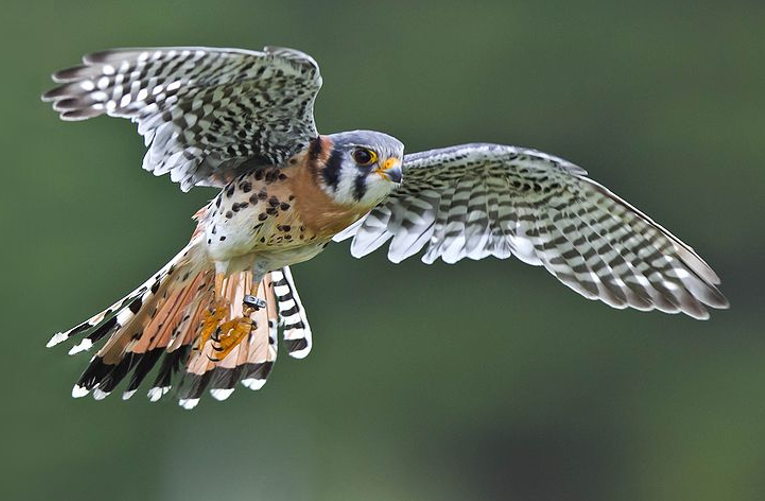You know when you see a scientific name for a species, and it is written in Latin? Well, I was trained to use, love, and sometimes even create these Latin names. One of my favorite species is Falco sparverius, better known as the American kestrel. They are gorgeous, territorial birds, and mated pairs stick close together much of the time. Thinking about them makes me smile. It soothes. And I need that right now.
I didn’t work on bird taxonomy, but instead cut my taxonomic teeth on plants that grow in exotic parts of this lovely planet. Members of my botanical family, Cunoniaceae, thrive in wet, montane habitats, so I climbed a lot of mountains to haul specimens from moss-laden, forested slopes. It was mostly wonderful, but it could be harrowing. In Samoa, on top of Mt. Silisili, me and two guys I met at a youth hostel — a Canadian student and Dutch stockbroker — warded off hypothermia by wrapping ourselves in a tarp like taco filling, spooning for 11 hours as we shivered on our shared bed of crushed lava rock.
The work of classifying species goes back centuries, and to learn from past explorers, I spent months in musty old museums, such as the Muséum national d’Histoire naturelle in Paris. One night I stayed up so late, alone in the ancient stone building, that I missed the last Métro and had to walk for miles through the silent city to my apartment in the 6th arrondissement.
I share these adventures to make a simple point. When it comes to taxonomic work, I didn’t just fall off a turnip truck. I’ve seen a lot, weathered ups and downs, and been around the block and over the mountain. You get the picture. Still, none of this adequately prepared me for the ordeal of my latest work, done in service to the Crazy Town podcast.
My paper, “A Species-level Taxonomic Treatment of the Phalse Prophets with Hypotheses on their Origin and Evolution” was published in March 2023 in the Proceedings of the Royal Society of Insanis Civitatem: Occasional Publications. I did the research and wrote the paper so that readers could quickly identify and avoid Phalse Prophets, which, unfortunately, have come to occupy many of the highest positions in government, business, media, and academia. You can imagine the psychological toll that comes with studying such a toxic mix of species. The terrain I had to traverse was just as challenging (if not more so) than what I endured with the plants of Cunoniaceae. Instead of dealing with terra firma, I had to cope with menta infirma as I meticulously catalogued the tortured ideologies of highly influential modern-day gurus who are spewing all the wrong “solutions.”
To recover I am taking a lot of walks, watching the birds and awaiting the flowers of spring. Oh, how I love biodiversity, in all its wonderous forms. But the Phalse Prophets tested my affections. I’ve come to believe we need fewer grandiose ideas and plans, particularly from those with god complexes. Exploring the Earth, from climbing mountains where we can see the vast sweep of the landscape to stooping in the field where we can observe the micro-worlds of ants and fungi, can deliver both awe and serenity at the same time. But perhaps the most important thing we can learn by getting away from the trappings of modernity is humility. We are small animals compared to the forces of nature. If I were to meet in person with the Phalse Prophet specimens I encountered in my research, I’d suggest that they take a long, long hike to a distant mountain top. Too bad most of them would probably start scheming how to visit Olympus Mons.
Teaser photo credit: originally posted to Flickr as Kestrel in Flight Author Vince Maidens. This file is licensed under the Creative Commons Attribution 2.0 Generic license. https://commons.wikimedia.org/wiki/File:Falco_sparverius_-Canadian_Raptor_Conservancy,_Canada_-flying-8a.jpg





